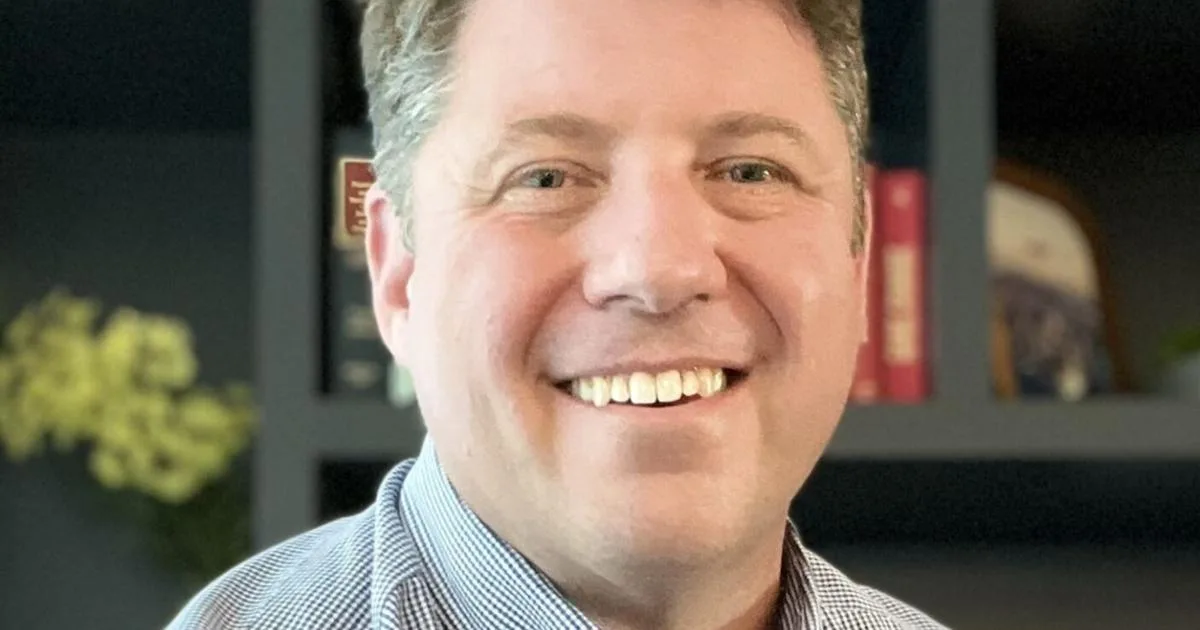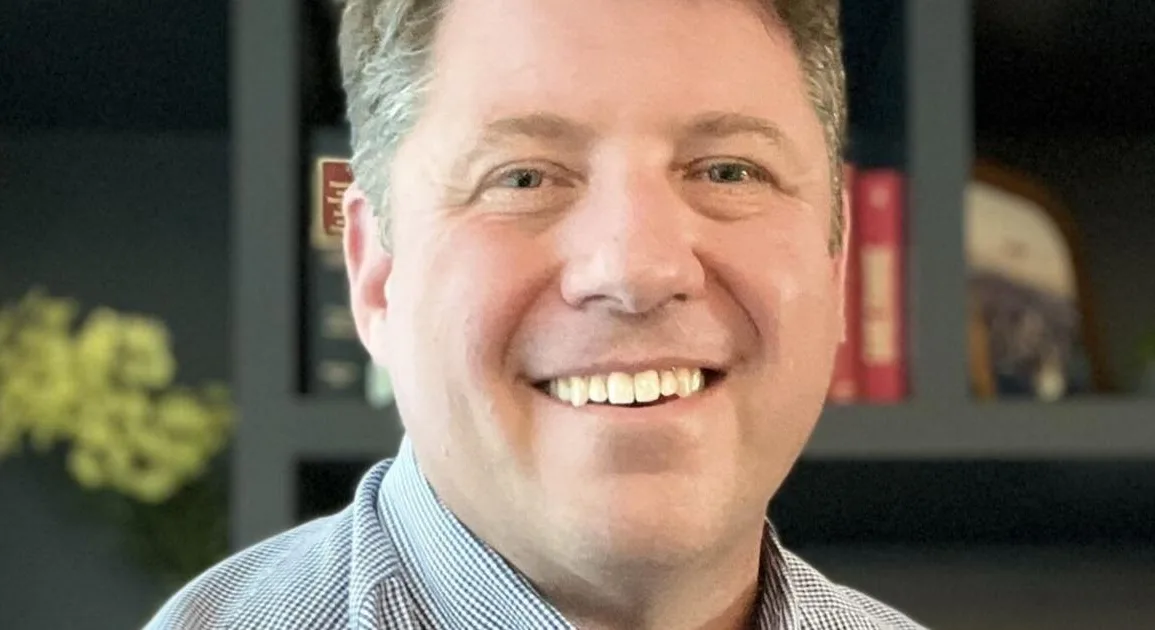
The second-in-command prosecutor in the Denver District Attorney’s office announced candidacy this week to replace outgoing DA Beth McCann in the 2024 general election. Democrat Zach McCabe, McCann’s assistant district attorney, enters the race after 18 years in the office.
As the office’s number two, McCabe’s roles, in addition to trying cases, have included supervising decisions about whether to charge police officers in use-of-force cases, and helping shepherd the development of a recently launched data dashboard that shows trends and patterns in the office’s cases.
McCann announced last month she would not seek a third term as Denver’s elected DA. She won the office in 2016, succeeding Democrat Mitch Morrissey. Secretary of State records indicate two other people, Lisi Owen and Joseph Leora, have also are registered as Democratic candidates in the race.
McCabe said he wants to continue investing in diversion and crime-prevention initiatives McCann has championed, such as the Handgun Intervention Program for children, which is intended to steer kids caught with guns away from violence. He also believes in the need for public investment in community-based programs for underserved populations.
And in a time when recent events such as the George Floyd protests in 2020 have strained trust in the criminal justice system, McCabe said Denver needs a district attorney who is willing to make decisions about accountability based on fairness and transparency, rather than popularity. That includes the ability to have a good relationship with the police department, while also having willingness to prosecute officers when necessary.
McCabe spoke with The Denver Gazette this week about some of the toughest types of decisions he believes a district attorney has to make, what he sees as the office’s role in preventing crime, and why he thinks he’s the person for the job.
The Denver Gazette: Tell me about your decision to run.
Zach McCabe: This is a job I’ve loved since the day I got it. It’s a job that has been very rewarding. There are a few things about this job that are unique.
I think that I’m the right person for the job. I’ve been in the office a long time. I know what it takes to try serious cases. But I also know what it’s like to have to make hard decisions, and to be guided by the principle of always doing the right thing, and not necessarily what may be the popular thing to do.
I think I’m a forward-thinking prosecutor. While I know how to try serious cases and hold people accountable, I do think our criminal justice system can and should do better. I’ve always learned and led by the principle that a prosecutor’s job is to seek justice, and not just win convictions. I think our system should be fair and transparent, and the right offenders should be given second chances to better themselves.
This is my passion. It’s been the best job in the world and waking up every day with the mission to seek justice and the goal to do the right thing is something I want to continue to do.
DG: What do you see as some of the hardest types of decisions that a district attorney has to make?
McCabe: It starts from day one as a prosecutor. We start off with lower-level cases, misdemeanors. Yet to that person who’s been charged, that’s probably the most important thing in their life at that time. And so you’ve got to try and do the right thing for that person and come to them with empathy.
If the police department filed the case, but you as a prosecutor don’t think the person did it, you’ve got to dismiss that case. It seems like an easy decision. But sometimes it can be hard for newer prosecutors. Then when we have tough murder cases, but if they’re justified — if it’s a self-defense issue — we need to be strong enough to make the right decision.
And obviously, police officer accountability can be an issue. To be clear, I think police officers deserve our support. But it’s the DA’s job to hold officers accountable when they do break the law. Those can be very hard decisions to make, and sometimes they can be very hard cases to make. Either decision you make, whether to not charge or to charge, it’s going to be controversial on one side of the fence.
And so those are some of the kinds of decisions that I think need a strong prosecutor with experience and vision and passion to do the job.
DG: To put a little bit of a finer point on things, you had been involved with the case of Matthew Dolloff. And the charge against him ultimately was dropped, and the case went on for quite a while before that decision was made. And so I’m guessing that probably was not a clear-cut decision as the case was going on. Can I ask directly, is that the type of case that you refer to when this kind of difficult balance can come up?
Matthew Dolloff was working as a private security guard for Denver Gazette partner 9News at a right-wing rally in October 2020. He fatally shot Lee Keltner, one of the rally participants, during a confrontation and was charged with second-degree murder. But prosecutors ultimately decided Dolloff likely had a case for self-defense or protecting others and chose to drop the charge in March last year.
McCabe: It’s exactly the kind of case. As I’ve mentioned, self-defense can be tough. And we knew from the outset that was going to be a difficult case to win. But as the case went on, we had more and more information about the victim and people he was with that day, including violent offenses they had committed, and also things they had said and done the same day. Such that when it came down to it, myself and the other top prosecutors in the office looked at the case, and we had to say, ‘This is a case that we don’t think we can win at this point.’ And so the right thing to do at that point was to make the decision to dismiss it.
DG: You also mentioned decisions about prosecuting police officers tend to be really difficult. They tend to get a lot of attention. And I imagine that no matter what decision you make, there are people upset.
One criticism that I hear about decisions on prosecuting police officers is, some people say, prosecutors are probably hesitant to charge police officers because they have to work with these police departments all the time. That relationship is really important. And so prosecutors might be hesitant to do something to strain a relationship with the law enforcement agencies that are so important to your work. Can I hear what your thoughts might be on that point of concern?
McCabe: That’s why you need a person as your district attorney who can do both of those things. It is so important that we have a good relationship with the Denver Police Department and their leadership. That relationship is uniquely important, and one that I think that I have done a good job of fostering.
But it can be a challenge, because it is still the prosecutor in the same district who has a responsibility to hold police officers accountable when they do break the law. Don’t get me wrong, I’m sympathetic to how difficult that job is for police officers. It’s a hard job to do. And it’s only gotten harder over the last few years. But you need somebody who can do both of those things.
One of my roles as the second-in-command here in the Denver DA’s office is to is to supervise and make those decisions on when we are looking at police officer conduct and whether charges are appropriate. Thankfully, most times they aren’t, but sometimes we have had to file charges on police officers. And to answer your question, it can be difficult. That’s why I think you need somebody who’s willing to take on those hard decisions and has the experience and strength to make them.
DG: In terms of broad programming, or overarching initiatives for the office, what would your priorities be?
McCabe: The broad outlines are that a prosecutor’s job is first, to effectively try the cases in front of him or her. I plan to hold criminals accountable. I think that the violent crime increase is something that deserves increasing attention, as does the sheer number of guns available and the gun-related crimes that result.
But I think Beth McCann has done a good job bringing forward-thinking initiatives, like the Handgun Intervention Program. Those are some of the things I think a prosecutor can, and should, be doing to increase trust and transparency in the criminal justice system. And to really, at the end of the day, try and do things that prevent those people from getting in the court system where they’ve already hurt somebody, and where sometimes the job is quite clear for a prosecutor.
I am interested in innovative forward-thinking initiatives, like the Handgun Intervention Program, like diversion for adults, those types of things that can help keep people out of the criminal justice system. Then at the end of the day, I think we can prevent crime.
DG: What do you see as the role of the DA’s office in trying to help prevent and curb crime? The DA’s office obviously comes onto specific cases after something has already happened. But then it seems the purpose of programming and diversion and things like that is to try to prevent crime down the road.
McCabe: As district attorney, I would try to bring a renewed focus to those things that I think really have been the drivers of crime recently. I think that there has been, over the years, a disinvestment in communities that are struggling. Don’t get me wrong, there are lots of good programs out there, which are trying hard. But I think overall, we haven’t seen public financing for those important programs.
And in the past 20 years or so, we’ve just, to a large extent, over-relied on incarceration and the police. While that can be effective in the short term, at the end of the day, it’s not sustainable. And what I think happened with COVID (is) it kind of exposed that these ties that were binding us together were not as strong as they could have been.
And then, with the George Floyd protests, there was a loss of confidence in the criminal justice system, and such that I think really exposed the fact that we have not put long-term investment into communities. There are things as simple as after-school or summer job programs that I’d like to even think about in the Denver DA’s office for high schoolers. Summer job programs have been shown to be effective in reducing crime in the short term.
But then we need to continue to give more support to those organizations in the community that are really forging those ties that keep people together, so that we are not in such a vulnerable state when something as shocking as COVID and the George Floyd protests hits us again.
I think the elected DA should also be a person who is a forceful voice and proposing policies and legislation that will impact and reduce crime over the long term, while our prosecutors in court are holding people accountable.


